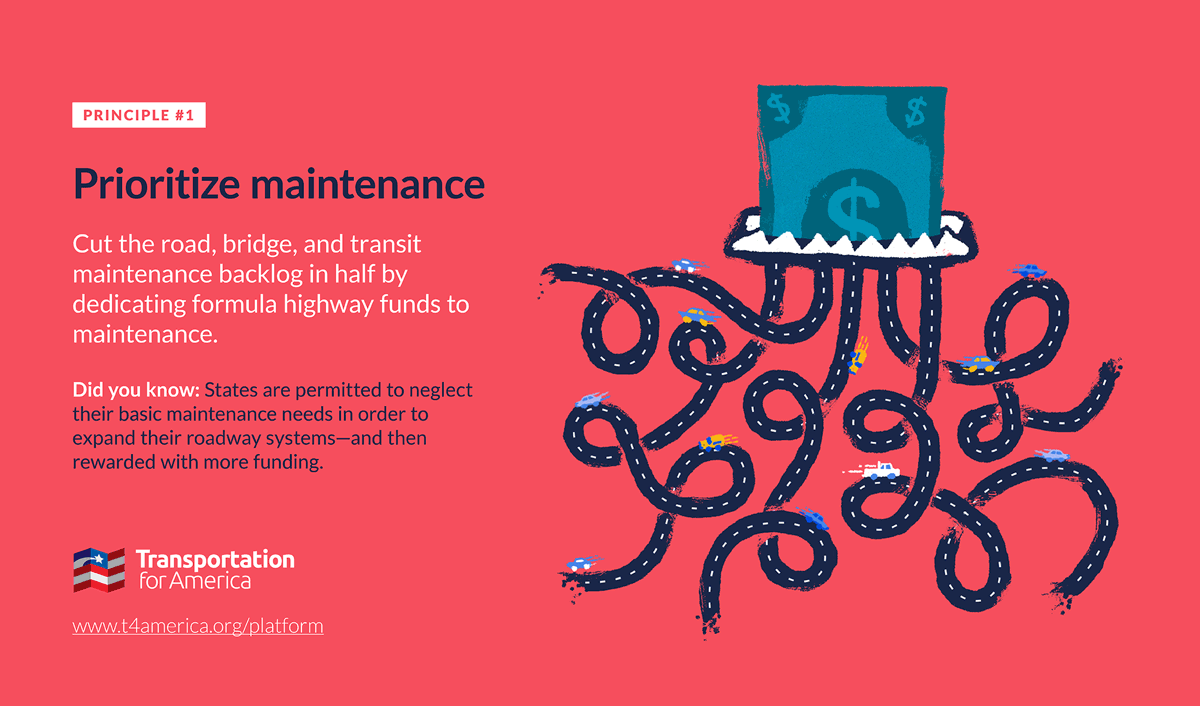Business groups urge Congressional support for transit funding
The business community gets it—public transportation is critical for the strength and growth of local economies and federal funding for transit is needed to get projects off the ground. In a letter to Congress, members of the Chambers for Transit coalition called for fully funding the nation’s largest grant program for public transit and reorienting the entire federal transportation program around clear goals and priorities.
Ahead of striking a deal to fund the government for the next year, the business community spoke out about the need to fund transit. A letter from members of Chambers for Transit, a coalition of chambers of commerce, economic development groups, business districts, and other business groups, laid out the case for robust federal support for public transportation:
“Public transit is critically important to the economic competitiveness and vitality of our local communities. Transit provides affordable access to jobs for many workers. For businesses, transit provides access to employees on a day-to-day basis.
“Over the long-term, investing in public transit is part of an integral strategy for creating the kinds of communities where many people want to live, with vibrant walkable neighborhoods and a diversity of transportation and housing options. This is critically important to our economic competitiveness because these are the places where businesses choose to locate so they can attract and retain a talented workforce.”
Their ask was twofold. Most immediately, they called for fully funding the transit Capital Investment Grant program in the next year, a program with bipartisan support that funds the construction and expansion of bus rapid transit, light rail, commuter rail, and other forms of public transportation. The U.S. Department of Transportation—the executive agency in charge of administering the program—has also been engaged in a well-documented attempt to undermine the program and delay the signing of grants. Therefore, these business groups also urged Congress to exercise their full authority to hold the agency accountable and ensure USDOT executes the program as intended.
Unfortunately, Congress made a $500 million cut to transit funding in this program for next year. The cut is a result of the diligent work by USDOT to slow-walk transit grants and make it appear as if the program was overfunded.
Beyond the immediate policy concerns is a long-term vision for federal transportation policy. The current 5-year federal transportation policy is set to expire in 2020 and Congress has barely begun to rewrite it. The signatories wrote:
“Nearly seven decades ago the federal transportation program set out with a clear purpose: connect our cities and rural areas and states with high-speed interstates and highways for cars and trucks and make travel all about speed. These brand new highways made things like cross-country and inter-state travel easier than we ever imagined possible. We connected places that weren’t well-connected before, and many Americans reaped the economic benefits. With the interstate system now complete, we’ve never really updated those broad goals from 1956 in a meaningful way despite diminishing returns and a lack of clearly defined priorities for this century.”
Despite the clear need for an updated vision and new policy goals, what Congress has produced so far is disappointing. Instead of a more fundamental rewrite that acknowledges how dramatically transportation has changed in the last few decades, legislators are largely tweaking policy around the edges.
These business leaders asked Congress to define new goals and priorities and write policy to support those priorities in the next long-term transportation authorization. The Chambers joined Transportation for America’s call to support the following three core principles for federal transportation investment:
- Prioritize maintenance
- Design for safety over speed
- Connect people to jobs and services
With new federal policy structured around those principles and robust federal funding for transit in the next year, communities around the country will be better positioned to become more economically vibrant.
You can find the full letter and the signatories here and learn more about each of the three principles proposed here.



















